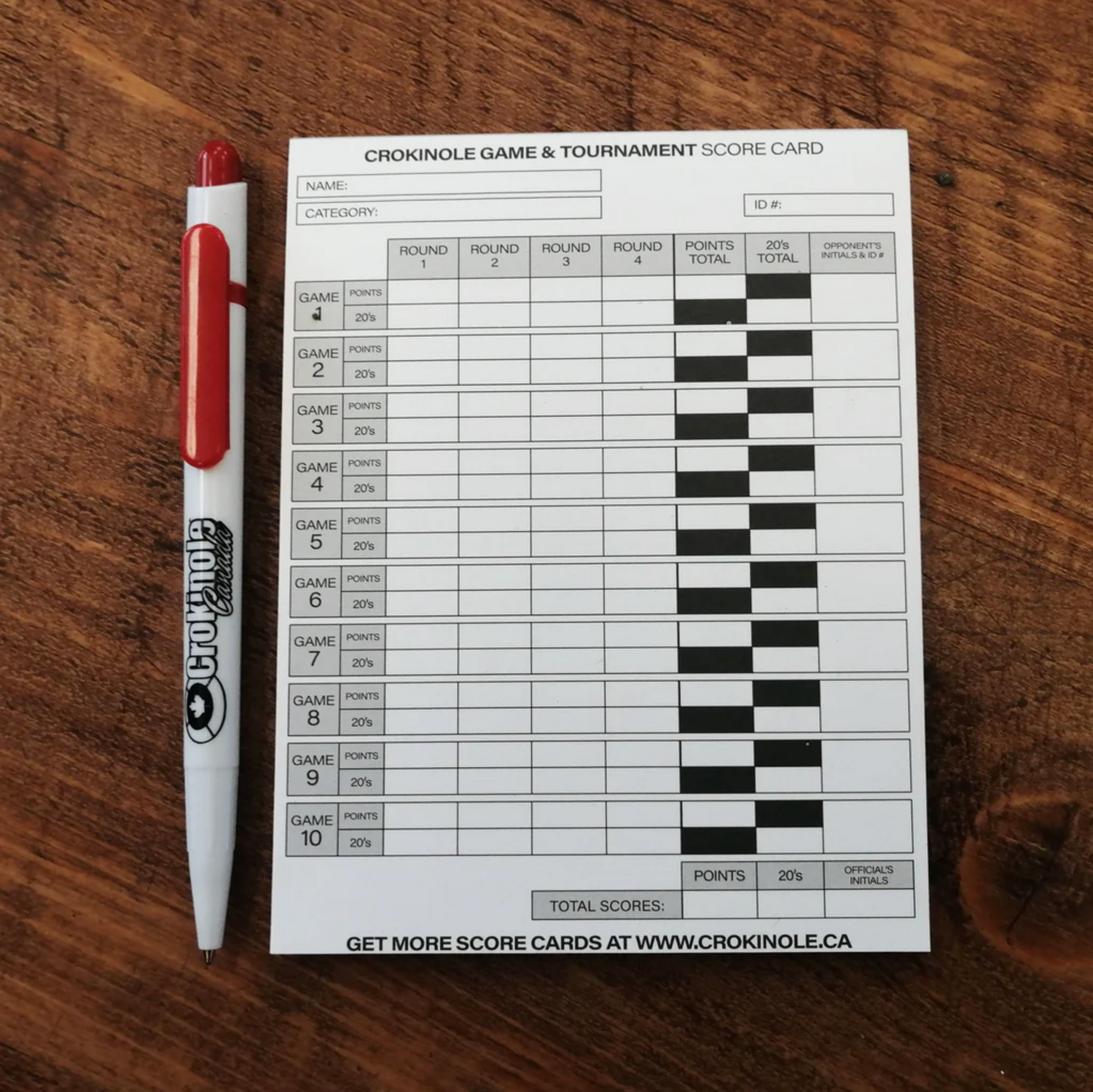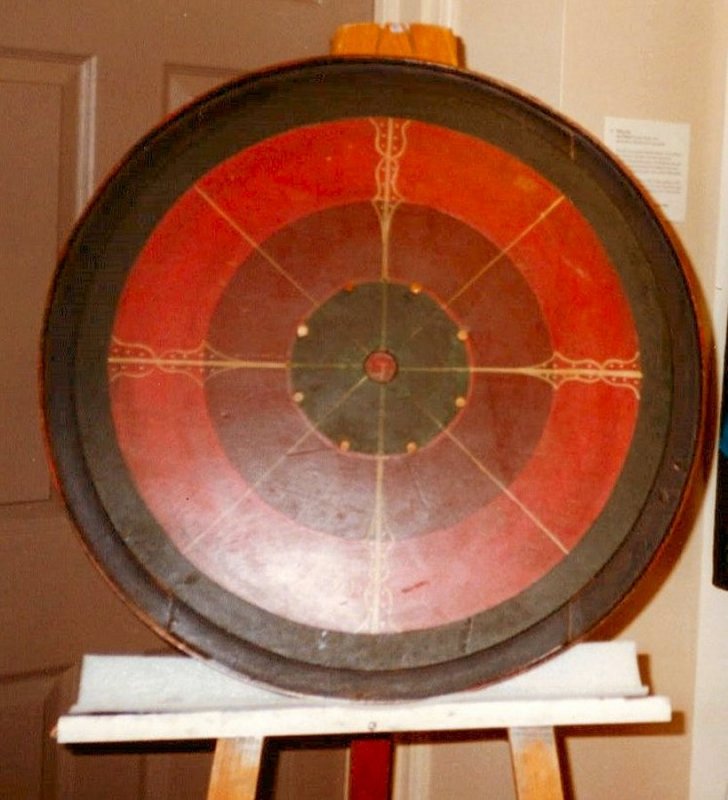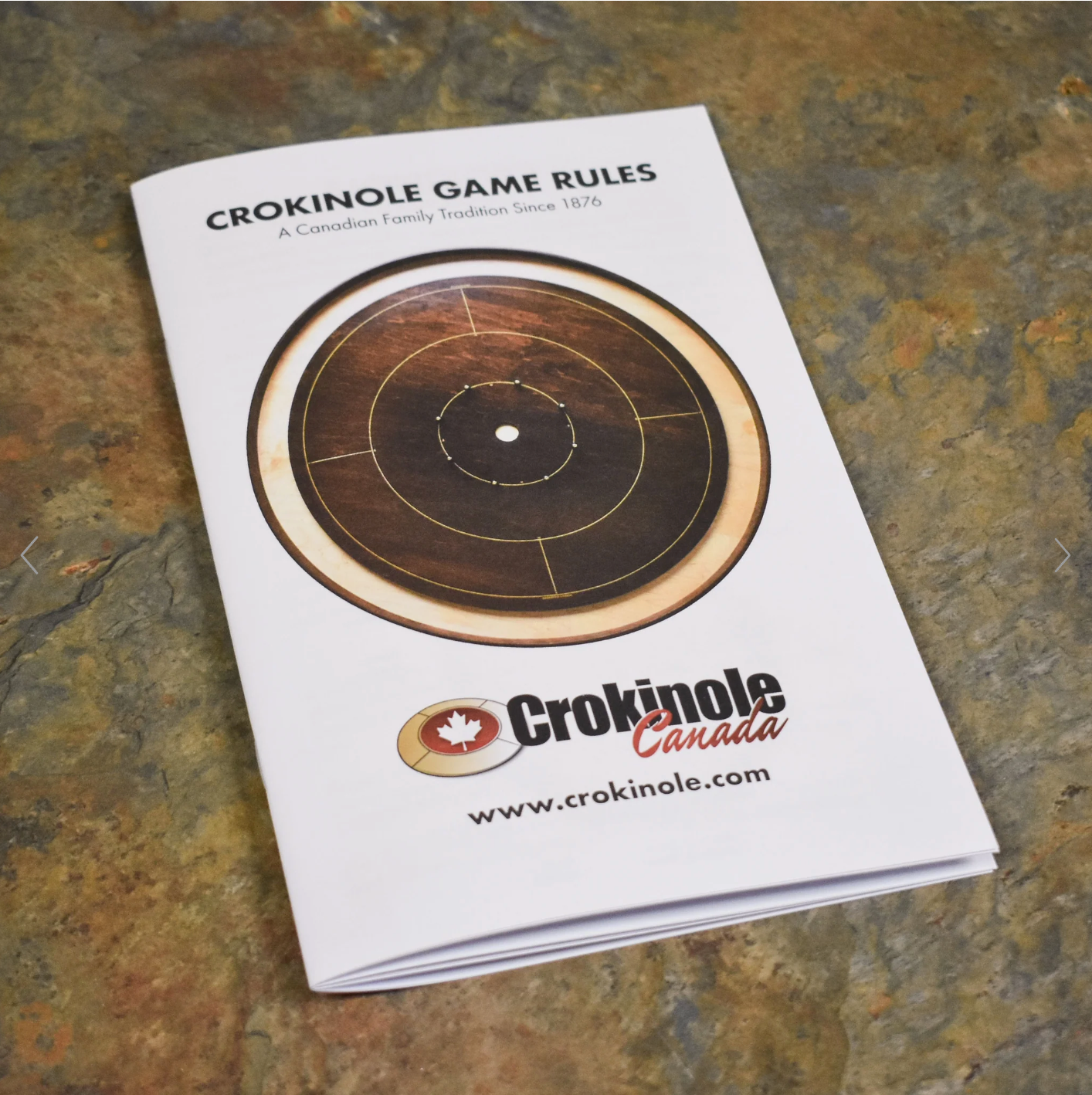Crokinole Rules Video
Rules
- View the World Crokinole Championship rules here.
- View Crokinole Rules in French
- Download Crokinole Rules in Japanese
- Download the Rules & Scorecards in English / French as a PDF
- Download the Rules & Scorecards in English / French as a Direct Downloadable PDF
- Download Tournament Scorecards as a Direct Downloadable PDF
- View the rules on 4 player crokinole

How does scoring work in a crokinole game?
To use these score cards, write "2" for a win, "1" for a tie, and "0" for a loss. Also write down how many 20 holes were scored in the round. Then total everything up at the end of the game to determine the winner!
Watch Crokinole Being Made

History
The earliest known crokinole board was made by craftsman Eckhardt Wettlaufer in 1876 in Perth County, Ontario, Canada. It is said Wettlaufer crafted the board as a fifth birthday present for his son Adam, which is now part of the collection at the Joseph Schneider Haus, a national historic site in Kitchener, Ontario, with a focus on Germanic folk art. Several other home-made boards dating from southwestern Ontario in the 1870s have been discovered since the 1990s. A board game similar to crokinole was patented on 20 April 1880 by Joshua K. Ingalls.
Crokinole is often believed to be of Mennonite or Amish origins, but there is no factual data to support such a claim. The reason for this misconception may be due to its popularity in Mennonite and Amish groups.
The game was viewed as a rather innocuous pastime – unlike the perception that diversions such as card playing or dancing were considered "works of the Devil" as held by many 19th-century Protestant groups. The oldest roots of crokinole, from the 1860s, suggest the British and South Asian games are the most likely antecedents of what became crokinole.
In 2006, a documentary film called Crokinole was released. The world premiere occurred at the Princess Cinema in Waterloo, Ontario, in early 2006. The movie follows some of the competitors of the 2004 World Crokinole Championship as they prepare for the event.
Source: Wikipedia
Photo Credit: David Victor Lagasse

